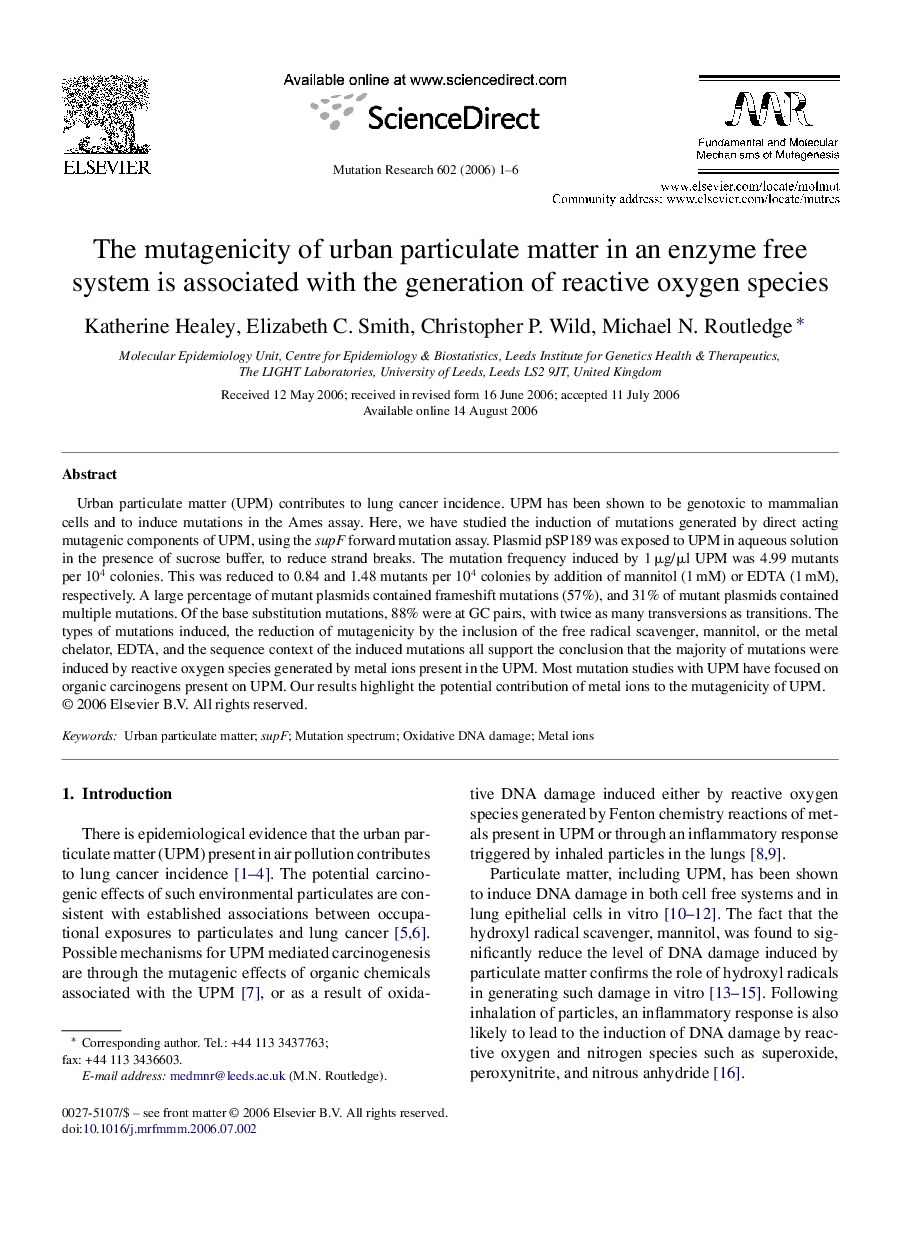| Article ID | Journal | Published Year | Pages | File Type |
|---|---|---|---|---|
| 2147395 | Mutation Research/Fundamental and Molecular Mechanisms of Mutagenesis | 2006 | 6 Pages |
Abstract
Urban particulate matter (UPM) contributes to lung cancer incidence. UPM has been shown to be genotoxic to mammalian cells and to induce mutations in the Ames assay. Here, we have studied the induction of mutations generated by direct acting mutagenic components of UPM, using the supF forward mutation assay. Plasmid pSP189 was exposed to UPM in aqueous solution in the presence of sucrose buffer, to reduce strand breaks. The mutation frequency induced by 1 μg/μl UPM was 4.99 mutants per 104 colonies. This was reduced to 0.84 and 1.48 mutants per 104 colonies by addition of mannitol (1 mM) or EDTA (1 mM), respectively. A large percentage of mutant plasmids contained frameshift mutations (57%), and 31% of mutant plasmids contained multiple mutations. Of the base substitution mutations, 88% were at GC pairs, with twice as many transversions as transitions. The types of mutations induced, the reduction of mutagenicity by the inclusion of the free radical scavenger, mannitol, or the metal chelator, EDTA, and the sequence context of the induced mutations all support the conclusion that the majority of mutations were induced by reactive oxygen species generated by metal ions present in the UPM. Most mutation studies with UPM have focused on organic carcinogens present on UPM. Our results highlight the potential contribution of metal ions to the mutagenicity of UPM.
Related Topics
Life Sciences
Biochemistry, Genetics and Molecular Biology
Cancer Research
Authors
Katherine Healey, Elizabeth C. Smith, Christopher P. Wild, Michael N. Routledge,
